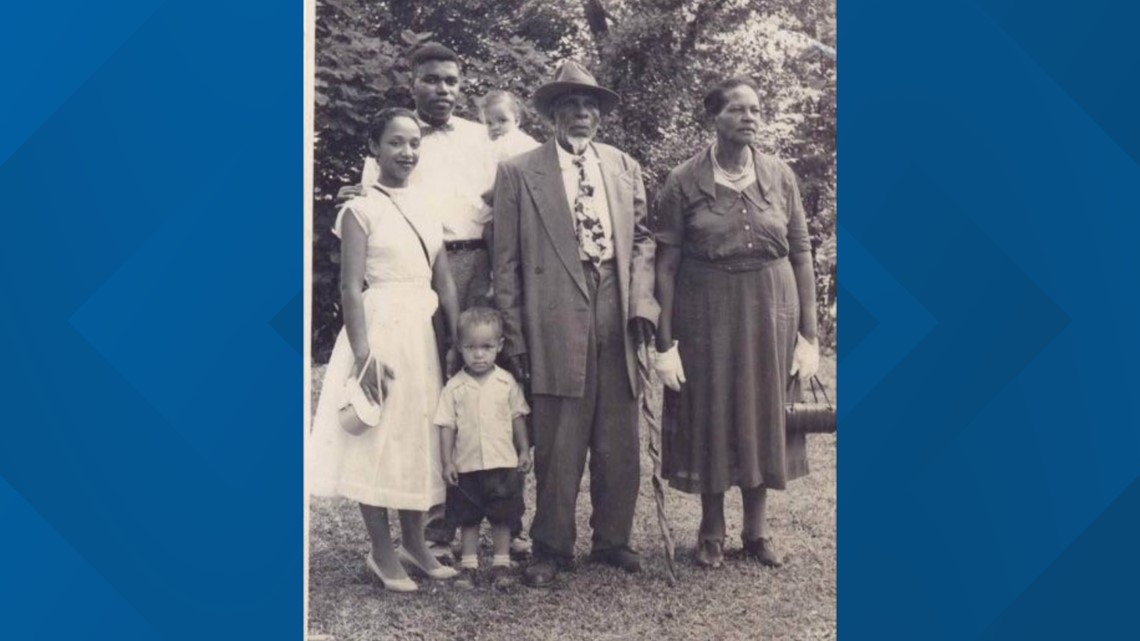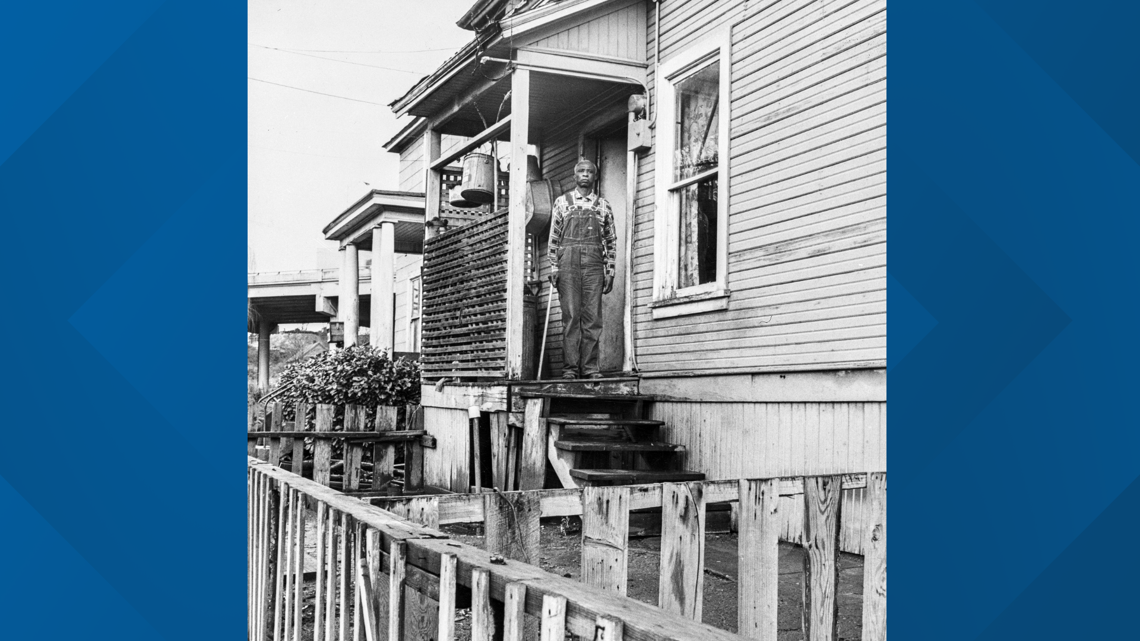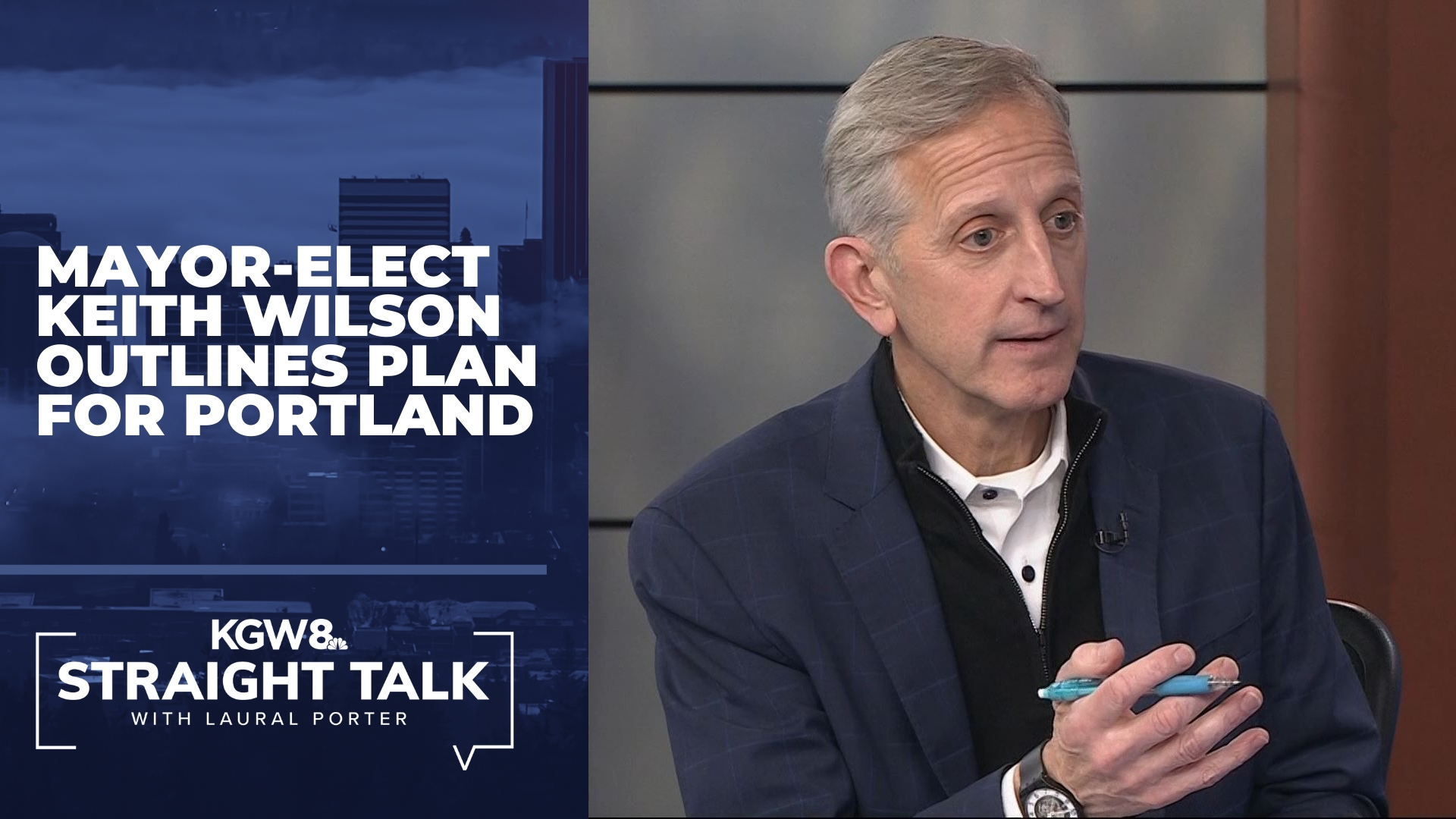PORTLAND, Ore. —
Slavery: Not many generations removed
Oregon State Sen. Lew Frederick has a photo of himself as a young boy in 1954 standing next to his 103-year-old great-grandfather who was enslaved from birth in Mississippi. It's a reminder that Black Americans are only a few generations removed from slavery in the U.S., and that the lasting effects of slavery and discrimination continue today.


"We have quite a family history of what took place. Certainly since Reconstruction and the way things have happened with voting rights, economic, and health issues. That's part of my family's legacy," said Frederick.
House Resolution 40 would form a commission to study reparations
Twelve and a half million people were shipped in chains from Western Africa to the New World. Amid a national reckoning over race and justice, a U.S. House committee passed a bill this spring that would establish a commission to study reparation proposals to repair damage from slavery and the resulting wealth gap for Black Americans.
Cameron Whitten, the founder of the nonprofit Brown Hope, believes the time has come to make amends and heal the suffering.
"It's very opportune we are talking about HR 40 that would establish something historic that has never happened in U.S. history, that is establishing an official commission to study the tangible impacts of slavery and other discriminatory acts against African Americans," Whitten said.
In a historic move in April, the House Judiciary Committee voted to move forward House Resolution 40. The bill was first introduced in 1989 by the late Rep. John Conyers (D-Michigan), but was never passed. Three decades later, Rep. Sheila Jackson Lee (D-Texas) is trying again. She sponsored the bill and hopes to bring it to a vote on the House floor. It would create a 13-member commission that would study the effects of slavery, hold hearings, and recommend "appropriate remedies" to Congress.
Sen. Frederick, Cameron Whitten, and historian Dr. Carmen Thompson were guests on this week's episode of Straight Talk to discuss why reparations are needed and what they might look like.
Story continues below.
"Reparations are owed and due... but more work is needed"
Dr. Carmen Thompson is a visiting scholar in Portland State's Black Studies department. She grew up on Alberta Street in North Portland, where her mother still lives. She agrees reparations are needed, but said there is much more work to be done examining the structures, systems and policies in place that have allowed discrimination and racism to persist in the U.S.
"In addition to reparations which are owed and due for the things that happened to Senator Frederick's family and so many other people of African descent, the fact that we need reparations means there was a structure of white supremacy in place that specifically targeted African Americans specifically locking them out," she said.
She said even if reparations are made for past wrongs, the structure that caused them to happen remains intact.
"The only thing that's changed is now, I can sit next to a white kid, or now, I can work here, now, I can go into a store or stay overnight in a hotel, but the problems, the rules, the methods and mechanism that put that in place, that is still there," Thompson said.
She praised the work Whitten's nonprofit Brown Hope is doing and Sen. Frederick is working on at the legislative level to find solutions to those discriminatory structures.
Call for reparations for Black families displaced by racist practices in Portland
Dr. Thompson has seen what decades of discrimination have done to Black Portlanders in the historically Black neighborhood known as Albina.
She said racist planning practices such as redlining kept Black Portlanders in one neighborhood and suppressed home values and educational opportunities.
"When they talk about the historically Black neighborhood, talking about it in a kind of nostalgic way, the reason we have a Black neighborhood is because of redlining, because of segregation. Each city in the U.S. has a Black neighborhood. It's not because all the Black people decided to live there. It's because of the policies and practices... that segregated African Americans into one neighborhood," Thompson said.
Then with urban renewal many of those Black families were forced out and Black neighborhoods were destroyed. Residents of Albina were displaced over three decades. According to the Fair Housing Council of Oregon, the construction of the Veterans Memorial Coliseum in the 1950s, the construction of I-5 in the 1960s, and the expansion of Emanuel Hospital in the 1970s resulted in the destruction of 450 homes in the predominantly Black neighborhood.


There's a call now for reparations at the local level to those families and their descendants who were displaced.
Sen. Frederick said those families lost more than homes and supports making amends.
"Many of those families lost homes, they lost value, they lost collateral for putting together businesses and education. Yes, I think there is a significant case that can be made," he said.
Oregon Legislature shows support for HR 40
The Oregon Legislature passed a measure called a joint memorial urging Congress to begin the process of making a plan to pay reparations to descendants of African slaves in the United States. It doesn't change Oregon law, but Sen. Frederick said it builds on the growing support that something should be done to repair the long lasting damage of slavery.
"The reparations could be financial. It could be in terms of housing. It could be in terms of a number of things, but reparations is something we need to consider and that's what the resolution says from the state of Oregon," Frederick said.
What should reparations look like?
There's disagreement over how reparations should be made.
Many believe they should be direct payments to individuals. Others say reparations should include housing grants and college tuition. Still others say all of the above and more is needed.
Cameron Whitten said there's no specific course for how to make reparations and that's why the commission H.R.40 would establish is needed.
"For us to hear expert testimony. For us to hear the stories, the lived experiences of the descendants of people who were slaves. Because the reality is clear. If you are a Black American living in the U-S right now, you are less likely to see the same amount of educational success or the same amount of services. Housing access, jobs, and wealth. Life expectancy," said Whitten.
Whitten said reparations could have an impact on all those areas of disparity.
Dr. Thompson believes reparations need to begin with an audit of every aspect of society at the local, state and federal levels, including housing, education, financial institutions, and health care.
"Then we can really have the view of what really is the damage. And once we know that, then we can begin to specifically target how we can remedy that," she said.
Estimated reparation cost of $10-12 trillion
A Duke University professor estimated $10-12 trillion would be needed to atone for historical injustice. That's $800,000 per Black household. Critics question whether the federal government could afford such a price tag, which according to the Duke study, amounts to about half of the annual US gross domestic product.
Frederick said the country has benefited more than that from African Americans, and he and Whitten pointed out slavery was built on a profit motive in the U.S.
There is pushback from some in Congress. Senate Minority Leader Mitch McConnel has said he opposes making reparations.
“I don’t think reparations for something that happened 150 years ago, when none of us currently living are responsible, is a good idea.”
"We saw both slave owners and those who just participated in this economy developing wealth. And we did not see that wealth development exist for Black Americans. We need reparations to have a tangible impact on the wealth gap in this country," said Whitten.
Frederick said in the south and east and other parts of the country, enslaved African Americans did the work that helped build the nation.
"Let's be clear, the White House was built by slaves. When you start looking at these things, the amount of money is not one of those things that frankly is a deal maker for me," Frederick said.
"We are the ones we are waiting for"
Whitten said he and his nonprofit Brown Hope will continue to advocate for House Resolution 40 and encourages others to support it.
"We need every single person to be thinking about reparations as a household conversation. Finding ways to get behind H.R.40 to get that passed, but also find ways to bring reparations into your very own communities. We are the ones we are waiting for," he said.
Straight Talk airs Friday at 7 p.m. and Saturday and Sunday at 6:30 p.m.



